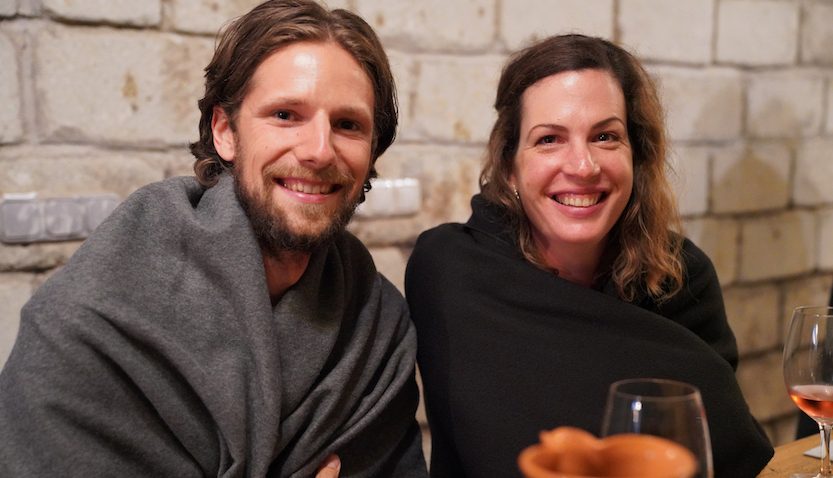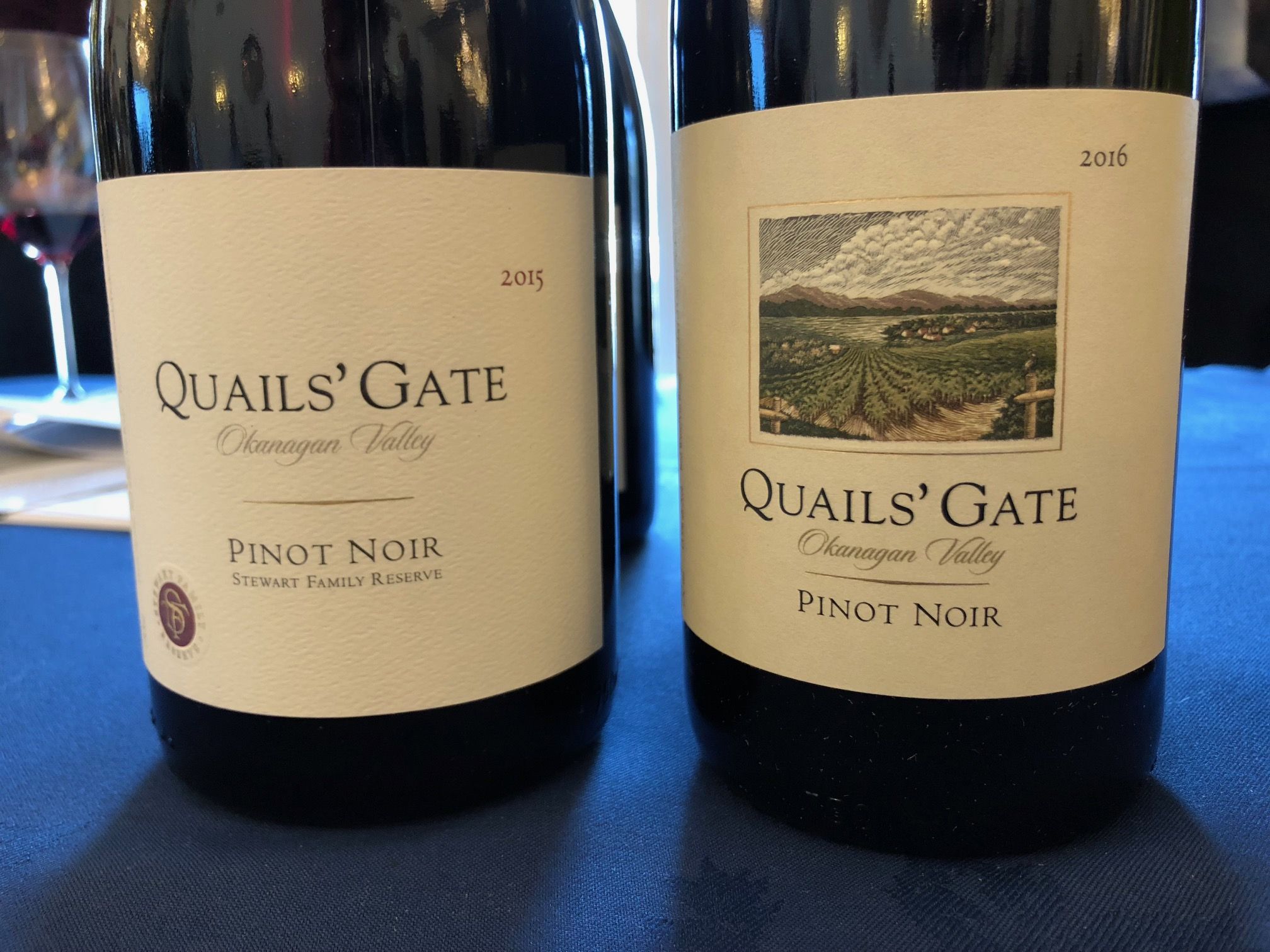St Andrea is situated in Eger, a region that has largely volcanic sub-soil and an extremely diverse sets of top soils – allowing the winemaker a wide range of possibilities.
Tell us about your own background and that of the winery
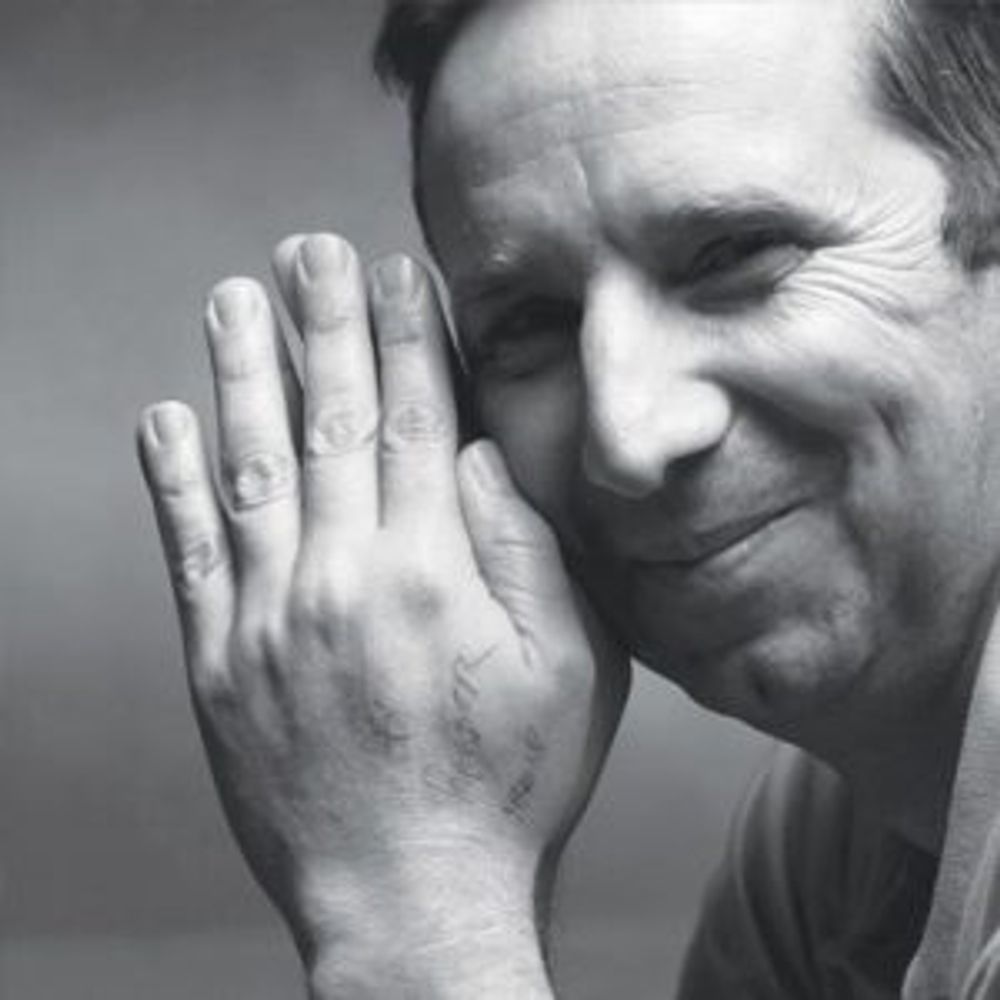
Enologist Lőrincz György
Eger is one of Hungary’s most famous wine regions, noted for its hearty red ‘Bull’s Blood’ wines, and winemakers Lõrincz György and Lõrincz György Jr. believe that there are many exciting possibilities to still be had from this historic area.
St Andrea has taken this to a completely new level, by creating a higher grade Egri Bikaver quite unlike the cheap Bull’s Blood still on the mass market. Theirs is half Kékfrankos with Merlot and Pinot Noir and just a smidge of Kadarka and Cabernet Franc.
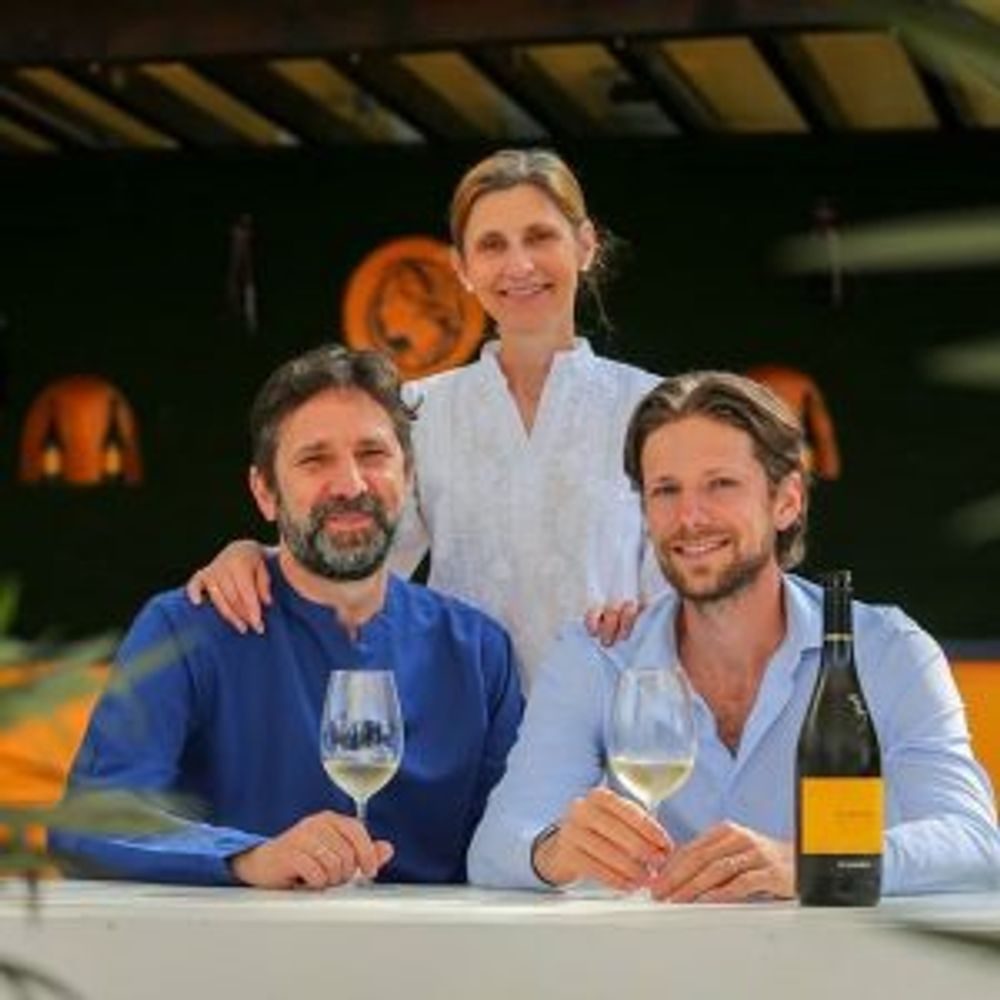
The György family
They work in a thoroughly modern winery but have faith in tried and traditional methods too, trusting their unique terroirs and their careful tending of the vineyards to supply them with high quality fruit.
The estate covers four different locations and nine distinct plots, most of which feature soils that are essentially volcanic ash compacted over millennia at various depths across the sites. It is the best company by a mile in Eger.
Personally, I have graduated as an enologist in Budapest, then worked at the research centre as well as the cooperative in Eger. In 2002 an investor asked me to establish a winery, which is when St Andrea started. Presently we have nine sites and 45 hectares cultivated.
What is your average annual production and what grapes do you grow?
St Andrea recently reached an annual output of 200,000 bottles. We have 20 varietals that express the traditions of Eger but we mainly focus on two wines: the Egri Csillag (Star of Eger, St Andrea, Napbor) and the Egri Bikaver (old name: Bull’s Blood, St Andrea, Aldas)
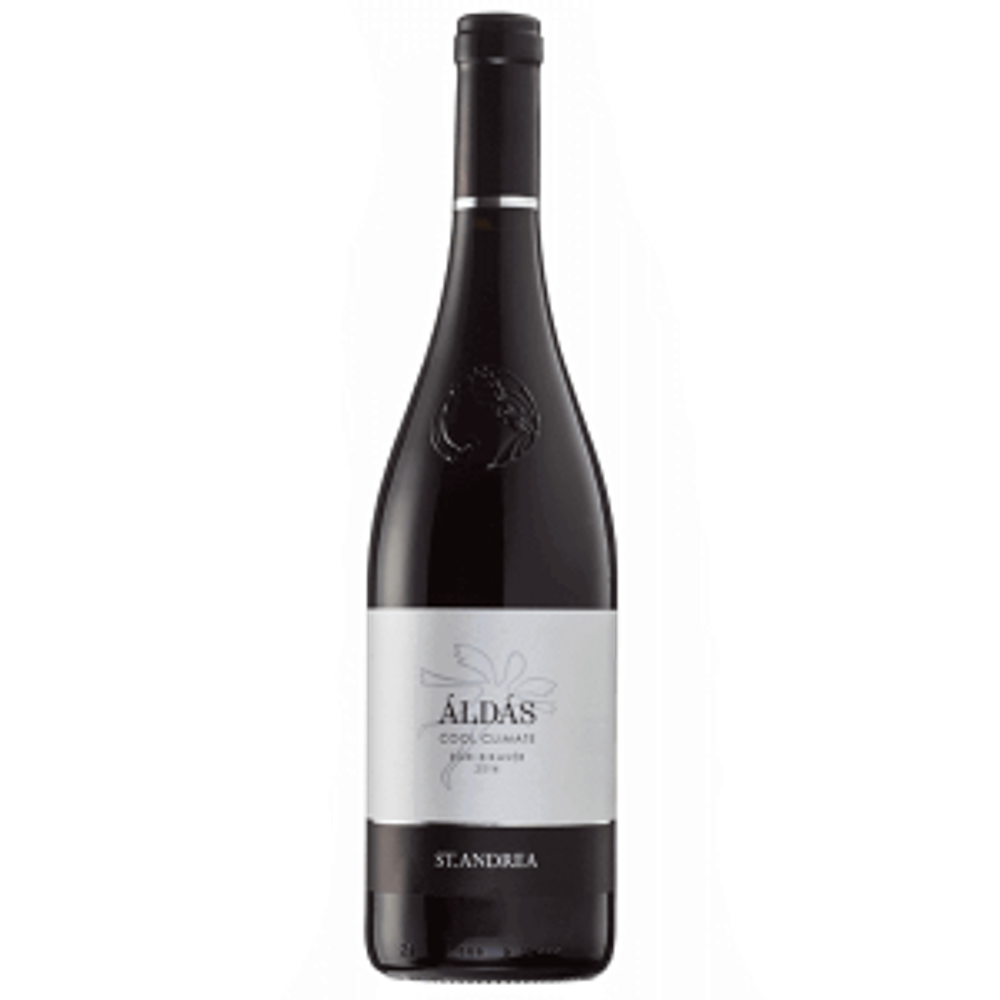
What is your approach to winemaking/ what kinds of wines do you want to make?
I would like to express the terroir in our wines. My vision is to make wines that match today’s expectations putting competitive quality onto the tables of restaurants and wine bars.
What do you think the 2018 vintage is going to be like?
Breathtaking. I sincerely hope that the wines will be beautifully rich in flavour this year even though we have started to harvest much sooner than on average.
Have you changed your production in recent years and the grapes you grow due to exports? If so how?
International wine professionals’ advice is very important to me. I tend to fine-tune my wines to match their feedback.
Where do you sell your wine…key export markets and why
Belgium, Holland, Poland and Taiwan are our most important markets so far – these markets tend to value our wines most at present.
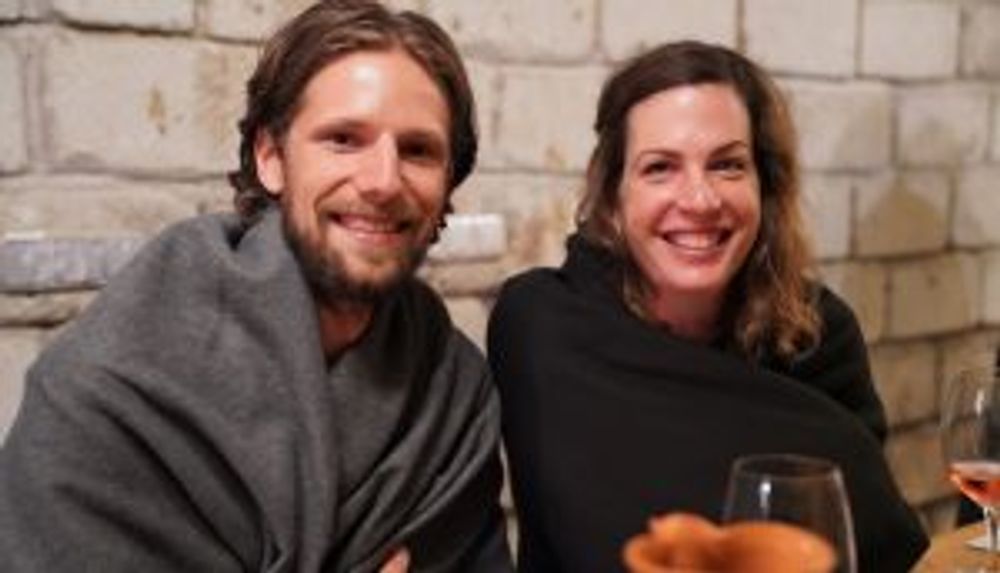
Enologist Lőrincz György Jnr with Lilla O’Connor from Wines of Hungary
What are your key price points?
Our key price points range from mid to higher quality and aim to deliver value for money. The most important thing for us is top quality and to achieve this is expensive therefore we will reflect this in our pricing.
What perception do you think wine buyers have of Hungarian wine… do you think that is changing?
I think they find Hungarian wines exciting and are seeking to create the most appropriate space for them in their portfolios.
What are you doing to change the views of buyers – are you entering competitions/tastings/ tours/ trips/ trade fairs?
We enter wine competitions and aim to create a close relationship with our buyers – we believe that we can give them the most accurate information if they visit us in our setting and terroir.
What do you think are the main benefits of Hungarian wine?
I think the Hungarian wine scene has a very special character and exciting, interesting wines, which we should be able to show internationally.
Did you benefit from a shortage of wine in other countries in 2017 and buyers looking for new sources of wine…
No. We work hard every year!
What are your ambitions for the winery over the next five years
We would like to establish Eger internationally. We hope to create more sophisticated wines year on year and a wine style that is appreciated internationally.
How are you going to achieve that?
I seek the experience of internationally recognised opinion leaders and implement their views into my vinification process and our philosophy.
How do you see the UK market?
It is a very dominant and an opinion-forming market where we can really compare international quality and our wines!
